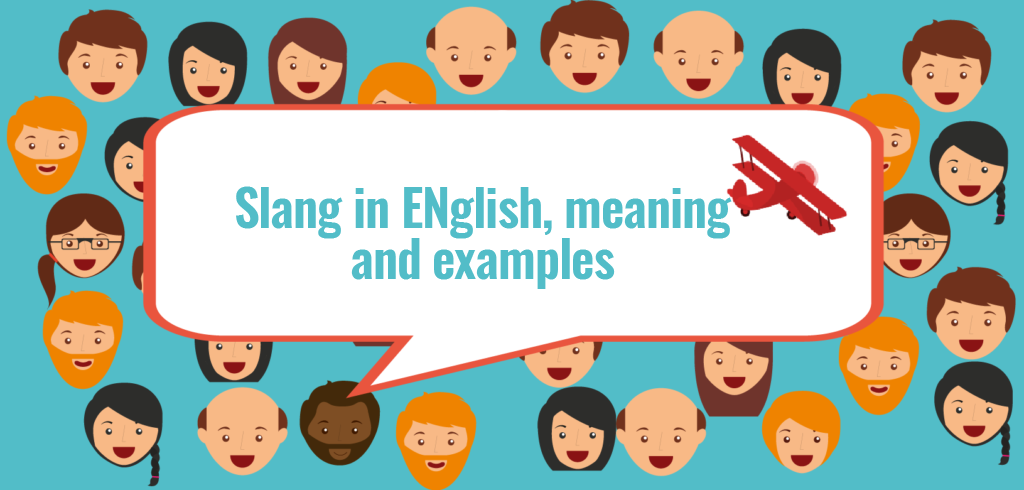Slang in English, meaning and examples

In all the languages of the world, as happens with English, people in friendly and ordinary conversations usually use a series of terms that together are known as “jargon”. The English also use them frequently, they are idioms, colloquialisms, which should not be ignored so as not to find ourselves in certain difficulties in a conversation with them.
ÍNDICE DE CONTENIDOS
Occasions for use
Of course, what makes learning difficult is the fact that each region has its own jargon, for this reason, it makes learning any language an interesting challenge.
In the UK there are as many accents as there are variations of slang. It is important to learn it, at least the most common and used, especially considering that in school or when taking English classes we learn a very formal way of speaking it, which although it is useful, however, when we have friends or meet present us with the opportunity to engage in more casual conversations, being able to use these idioms will make us feel more secure and also more relaxed.
In addition, when reading many books we realize that more formal English is used, the same we see it if we read a website, play online or even if we listen to a song, that is, on many occasions, the safest thing is that we Let’s run into colloquial terms. This is particularly true when watching comic series or movies, where people tend to speak more informally.
Slang vocabulary to build your family vocabulary
Describe someone
- Big mouth:
Talkative. You really have a big mouth.
- Bird / chick:
Nana.
- Broke:
Broke.
- Bummed:
Depressed/annoying / bad experience.
- Egg head:
Nerd (not egg headed!).
- Mental:
Crazy idiot
- Nerd:
Boy who is only interested in computers.
- Rookie:
Sad, pathetic.
- Slag someone off:
Say nasty things about someone.
- Sweet:
Nice, cool – you’re so sweet!
- Twisted, he’s twisted:
He is twisted
- Twit:
Moron.
Talk about food
- To swift one:
A quick pub crawl.
- Chinese:
Opt for a Chinese: go to a Chinese fast food restaurant, take out.
- Chippie:
Fish and fries.
- Grub:
Food.
- Sarnie:
Sandwich.
- Spuds:
Potatoes.
- Takeaway:
Takeaway restaurant.
In a conversation
- A piece of cake:
Easy.
- Bro:
Brother / Sis abbreviation for sister.
- Cut it out:
Shut up
- Don’t mention it:
No problem.
- Get out of here! :
Give me a break! : Are you kidding!
- Gosh:
Damn!
- Like:
(Euuuuh – a word that you will hear very often 🙂).
- My bad:
It’s my fault.
- Neat:
Owl, alright.
- On the tip of one’s tongue:
At the tip of the tongue
- See ya!:
Bye
To describe a feeling, an emotion
- Ace:
awesome, awesome, ace / Awesome: brilliant / Kick-ass: too cool
- Ballistic:
furious, very angry (as in “You will go crazy when you hear that”)
- Blown away by:
very impressed by, annoyed by
- Beat: exhausted:
exhausted: tired
- Feel you:
I understand you
- Gutted:
nauseated, very angry at yourself
- Knackered:
exhausted,
- On cloud nine:
being very happy, in your cloud, in the seventh heaven
- Pissed off:
(“I’m pissed off”): I’m sick
- Shattered:
broken, very tired
Talk about money
- Buck:
one dollar – bucks dollars
- Cheesy:
cheap,
- Dough:
Currency
- Grand:
thousands (pounds or dollars)
- Crux:
pound sterling)
Other familiar words and expressions
- Cop / fuzz:
Policeman
- Fag:
cigarette (GB) / homosexual, gay (US)
- Freeby:
free supplement
- Halls:
dorm, city U
- Hell of a:
(adjective expression): sacred, huge
- Hoodie:
(hood = hood): hoodie
- John:
WC (well, more like “toilets”) – I prefer “toilet”, the one for ladies or gentlemen (ladies / gentlemen’s toilets)
- La la land:
a wonderful world that does not exist
- Mickey Mouse :
Absurd, uninteresting – “The homework the teacher gave us was Mickey Mouse”
- Yadda yadda yadda:
bla bla bla
- Yucky, yug, yuggy:
disgusting
Some slang verbs
- Blab:
speak, reveal secrets
- Bum abound:
Wanders
- Catch some rays:
sunbathe
- Chill out:
calm down / cool down calm down / cool down
- Cram:
work hard / check
- Crash (out):
go to bed, stay asleep
- Dig:
enjoy – I love that song!
- Get it:
understand
- Go bananas:
go mad
- Hang on:
Waiting
- Hit the switch:
turn on, turn off (TV, etc.)
- Hustle:
hurry up – if you don’t hurry, we’ll be late again
- Lend a hand:
help, lend a hand
- Shoot down to:
go fast to … (for example, shoot the station)
- Suss out:
find the solution
- Screw it up:
spoil something, fail (like during an exam)
Conclusion
With this article we want to clarify that in all languages there are informal words that make up the “language of the street” , but that in English this popular language is specially installed and developed. They are colloquial expressions that arise and develop both over time and geographically, for this reason the most widespread languages have a larger and more developed jargon. Such is the case of English.


